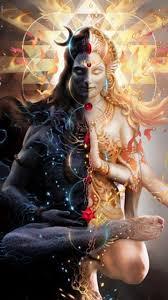
“India is a land of many festivals”, is an obligatory line that most students between the ages of 9-12 start their essay with when they have to write on their favourite festival. All the essay books , that guarantee 100% in the exams have this line too. Yes, India indeed is a land of numerous festivals (and many more mid- week holidays as a result of this). Most of these festivals that we so fondly recount are Hindu festivals and you just need to scratch the surface of these to see the reality beyond the colour, the glamour and the gastronomical delights.
As a child my bed time treat consisted of the stories from the Ramayan and the Mahabharat, and I took special joy in my father recounting those stories over and over again. As I grew up and became the quintessential rebellious child of the family, amongst other things, began to question the logic behind the festivals that we participated in with so much gusto.
Rakshabandhan, bhaidooj, Bhai-Teeka, Teej, Karvachuth to name a few of the festivals that have been a part of any Hindu family. Take a moment to look beyond the obvious, to uproot yourself from the social conditioning which tells you that the only function of these festivals is to bring cheer , happiness and celebration of “Indian-ness” . The festivals that have been mentioned above have a common thread running through of telling the Indian women where their rightful place is. You guessed it right, an Indian woman’s rightful place is wherever her male counterpart (father, brother, husband, boyfriend) decides it is.
Majority of the festivals that are regarded as the epitome of Indian culture and tradition are merely taking the age old agenda of perpetuating patriarchy forward. I do not intend to spoil the fun and frolic that each of these festivals bring in and that we all so enjoy by uttering the “P” word. But , at the risk of repeating myself, go a little beyond , apply your mind and then you might realize the truth in my statement.
How come in today’s world and age when women are trying to establish themselves as someone beyond the identity of a mother, daughter and a sister, no one sees the irony of celebrating these festivals. Raksha bandhan, for me has always enforced the belief that no matter how old or able or independent I am, I would always need my brother ( who is a good 10 years my junior) to protect me. Isn’t Rakshabandhan all about the sacred thread that sister’s tie on the wrist of their brothers with a promise that the brother would protect his sister? I love my brother but I am most definitely able to take care myself. Thank you very much.
Teej, the festival of the colour red and green was recently celebrated both in Nepal and in the northern part of India is characterized by lots of dancing, fun and an extended holiday. Not to forget the never ending servings of food that is offered. Teej is observed for the longevity and well-being of one’s husband or in case you are not married yet, for a loving and caring husband. Similar is the festival of Karvachauth, where married women are expected to fast the entire day, not even letting themselves drink water, so that their husbands( who may come home drunk and beat them up mercilessly or could be indulging in other forms of cruelty, fit to be taken as a ground of divorce under the Hindu Marriage Act) may live a thousand years. If marriage is all about partnership and equality, why can’t we see that the real motive of Teej or Karvachauth is the exact opposite of it. Instead of promoting partnership, it promotes and perpetuates subordination and servility.
But all is not lost, if I look around there is still hope. My mother refuses to fast on either Teej or Karwachauth and my younger sister who has two daughters, makes the girls tie the sacred thread on each other’s wrists. After all sisters can equally protect each other, probably even better than from a male.
Traditions are meant to provide us with a sense of belonging and rootedness but these need to be re-examined in light of the changing times and the context that we live in. Or else, we run the risk of cultural stagnation and being part of a society that can only go one way: Downward.










Comments
Traditional Hindu Ceremony
Add new comment